Top Ten Singles of the Decade
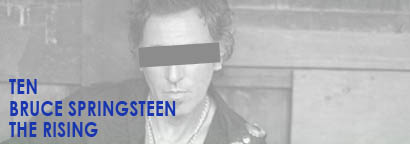
Pop culture generally knows better than to try and tackle topical tragedy, which is why with a couple of exceptions, the September 11, 2001 terrorist attacks didn’t really change the culture landscape very much. Bruce Springsteen, as usual, proved an exception, releasing an album and (in particular) a song that took the America’s outward fists of rage and turned them into upward fists of passion, smashing through the sky with every “la la la” chorus. After a moment of great sorrow, followed by questionable decisions and misplaced aggression, “The Rising” miraculously made America sound beautiful again.
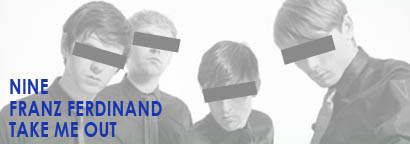
Best fake-out of the decade, easy. For 55 seconds, you think you’ve got it all figured out: these Scottish lads are going to deliver a nice piece of post-punk riffage that’s probably going to make for a good three-minute rock song. And then the beat slows down. And then the guitar slashes through the speakers with an entirely new agenda. Now we’ve got groove, swagger and a sinister edge. It’s as if you thought you were being dragged for the dance floor, but you end up at her place instead. In other words, it’s one hell of an evening.
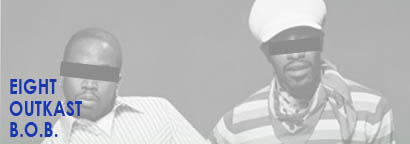
To someone like me – whose native language isn’t hip hop by any stretch – the 2000s seemed like a decade where the boundaries of what constituted “rap” music were stretched to the point where the genre burst at the seams, and cheers to that. But the biggest genre smashing moment for hip hop came early at decade’s dawn, as Outkast kicked off Stankonia’s litany of hit singles with the manic, crazy, brilliant “B.O.B.” Both Big Boi and Andre 3000 spit out their rhymes as if time is running out on them, as if their very lives depend on getting sneaking the next breath in between their lines. From guitar riffs to gospel choirs, it’s as if the entire history of modern music has been shoved desperately into one single song, and the result just barely holds the seams together.
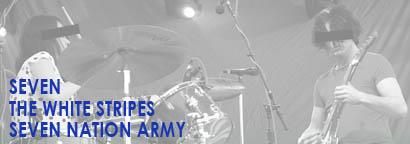
For a band whose entire motif is minimalism, The White Stripes sure do know how to fuck with expectations. Just as every journalist and their mother were falling over themselves to talk about the band’s lack of a bass player, Jack White goes through the work of bumping up the low end and produces the bass line of the decade on his guitar. Add in Meg’s apocalyptic drum beat and White’s creepy, unnerving lyric and you end up with four of the decade’s most captivating four minutes of doom and dread. Oh, and the song’s placement at number seven on this list? A hilarious coincidence that gave me a good laugh when I realized it.
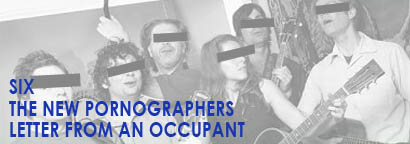
Prior to Mass Romantic, Neko Case was already an acclaimed alt-country vocalist and songwriter. But this was the moment that she became a goddess. Though much of the New Pornographers’ debut record was an exercise in harmony, “Letter from an Occupant” was mostly Case’s show, a glorious gift handed to her from the killer craftsmanship of Carl Newman. There’s no room for subtlety here, no time wasted on nuance or modesty. This is about filling every spare bit of space with sound and volume, with Ms. Case keeping every note hovering near the top of her majestic, incomparable lungs. I have no idea what any of the lyrics mean, frankly, but Case sings every one as if it’s the most important thing she’ll ever sing. She might not have been wrong.
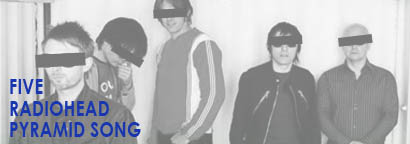
It says volumes about Kid A that Radiohead couldn’t find room for “Pyramid Song” on it. Any other band with such a beautiful, haunting track would have fought tooth in nail to squeeze it onto their new record (so long, “Treefingers”). But perhaps it’s for the best. Not only did the band choose to promote Amnesiac with a proper single, but placed among a hit-and-miss group of leftovers, “Pyramid Song’s” quiet revelations had ample room to resonate. Listening to the song today, though, what hits are the lyrics, a death’s dream equal parts creepy and breathtaking. Even among Radiohead’s countless contributions to the decade, “Pyramid Song” remains one of the band’s greatest achievements.

What always irked me about the mainstream hip hop songs I was exposed to growing up as a teenager was that they felt lazy; they were all overly concerned with a self-conscious cool and a manufactured sense of danger. What I wanted was REAL danger – a sense that these stories and these characters might not make it to the next song or the next album. Though I had initially dismissed his gimmick as a simple jokester, I had started to come around to Eminem when 8 Mile was released and he unleashed this monster of a track. I maintain that the opening guitar riff is the single greatest rock and roll moment of the decade, and even it’s just a teaser for the desperation and drama to follow. This is the hip hop song I was waiting for since I was 15.
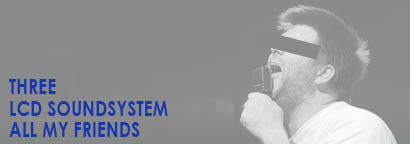
For the first time in what feels like a long time, teenagers are no longer the sole driving force in (what’s left of) the music industry. In the Internet age, it’s us 20- and 30-somethings who hold court more often than not, pushing our cult favourites into the higher ends of the Billboard charts and championing our favourites on blogs and websites across cyberspace. James Murphy’s first attempt at writing our anthem – the anxious, status-seeking “Losing My Edge” – was a noble effort, but he succeeded beyond all expectations with 2007’s “All My Friends.” Chock-full of nostalgia, regret, pathos and humour, the song wrestles with aging in a world that spites the aged, laying out its laments over the two repeating, unforgettable chords that echo long after the song’s seven glorious minutes come to an end.
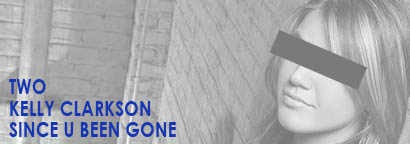
Great pop music should be a criminal act. Because the sonic innovations and creative shifts that occur below the mainstream surface aren’t always palatable to the masses, we need pop music to steal, take and borrow and translate the best of them into something agreeable instead of alienating, songs that earn consensus rather than produce conflict. “Since U Been Gone” takes a Strokes/Interpol-like verse, a New Pornographers-esque chorus and a ripped-from-the-Yeah-Yeah-Yeahs bridge and ends up with the decade’s great equalizer. But you know what? All the hipster cred in the world really doesn’t matter when that chorus kicks in. If there was a better distillation of sonic joy this decade, I sure as hell didn’t hear it.
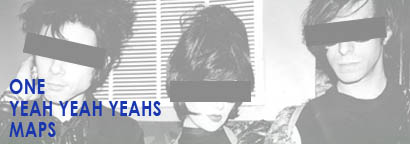
Three years ago, I put a Yeah Yeah Yeahs track at the top of my year-end list as a Stephane Dion-esque compromise and ended up regretting it like it actually was Stephane Dion. It’s not that my esteem for the band declined; if anything, it’s grown as the band’s sound has expanded into something less brash and more beautiful. No, I think I regretted choosing “Turn Into” – still a great song – because it was really just a thinly veiled desire on my part to write about “Maps.” Three years later, I get my chance.
In making this list, I circled around “Maps” time and time again, trying to determine if it truly represented the decade in a single song. I still don’t know if that’s the case (although having its bridge riff show up in my number two song makes a good argument for it) but for me, it’s the moment where the decade’s possibilities were blown wide open. As I started to get a sense of the sheer volume of music I was coming in contact with in the post-Napster era, I coped with the deluge by making presumptions and snap judgements. I would define a band in my head based on advance press or what music websites were saying about them, and I’d spend time with their records accordingly. With Fever to Tell, it seemed as if I was going to get exactly what I expected from the Yeah Yeah Yeahs: a bit ugly, a whole lot punky, as much attitude as sound.
But then, “Maps.” What on earth was this strange, breakable beast, buried in the final third of the record? From what planet did this shattered voice beaming from Karen O arrive from? What brought this lingering, tinkering guitar riff that blows between the headphones like an inspired wind? And how did anyone come up with “They don’t love you like I love you,” a lyric that sounded like it had always been there the moment I heard it?
From that point on, I stopped making presumptions when it comes to my record collection because, frankly, I really don’t know anything. I don’t know where the music industry is headed. I don’t know what my favourite band is going to do next. I don’t know what your favourite band sounds like. I don’t know where the next herioc effort will come from, and I don’t know when my next heartbreak will hit. The one thing I have figured out is that, just as it was with “Maps,” there is revelation out there just waiting to excite, to inspire, to surprise.
(If you’re just dropping by for the top 10, you can start reading the full top 100 – with write-ups for the top 50 – here.)





